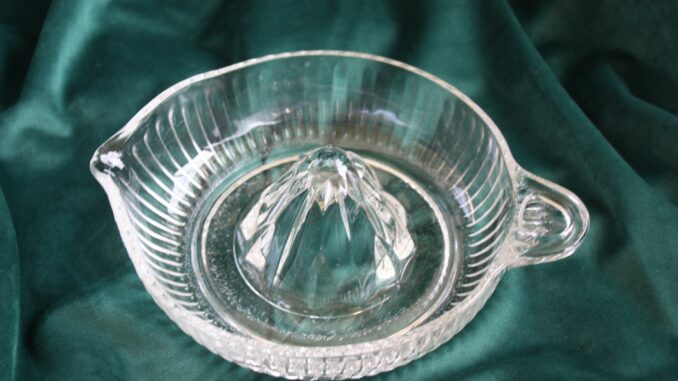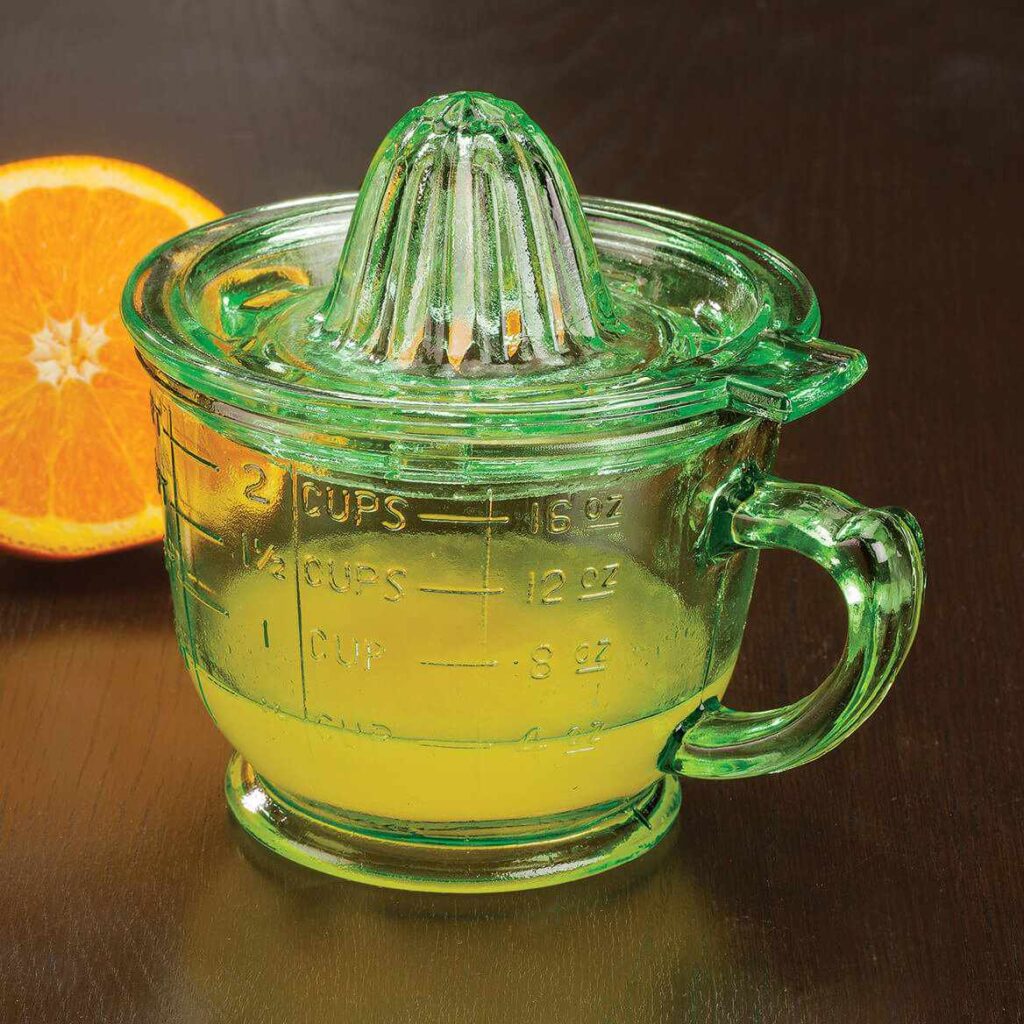
Seersucker, pecan pie, family heirloom silver, personalized monograms, bow ties, mint juleps, pink lipstick, and crystal. In the Southern tradition, certain elements remain timeless. Add to that list: classic glass citrus juicers.
While a juicer may not be as emblematic of the South as sterling silver julep cups or a Lodge cast iron skillet, they are a staple in kitchens across the region—and for good reason. They are iconic, beautifully crafted, and incredibly practical. These glass marvels, especially when vintage or crafted from depression glass, offer the simplest method for extracting juice from citrus fruits.
Juicing has been a part of human diets for centuries. As historical records like The Dead Sea Scrolls, dating back to 150 BC, reveal, recipes including “a pounded mash of pomegranate and fig,” essentially juice, have existed for ages. For generations, individuals who desired juice had to manually squeeze lemons, oranges, or other fruits—or in the case of wine, or as my mother refers to it, “grown-up juice,” grapes were foot-pressed. Lemonade gained popularity in the Middle East, spreading to Italy in the 16th century, while orange juice became prevalent in the 17th century, according to Vice. The Southern California Fruit Trade, later known as Sunkist, emerged in 1893, promoting orange juice as a nutritious, vitamin-rich beverage.
However, for Americans wanting to juice at home, manual squeezing of oranges, lemons, and grapefruits was the norm, which is why these ingenious hand-powered juicers have been a fixture in kitchens for generations. They remained the primary means of extracting juice from citrus fruits until Norman W. Walker invented the mechanical juicer in 1936, as documented by The Atlantic.
This Vintage Kitchen Essential is Experiencing a Revival, and We Couldn’t Be More Delighted This Joanna Gaines-approved glassware is making a comeback.
Unless you’re a dedicated juicer, or fortunate enough to have citrus trees in your backyard, there’s typically no need to trade your manual juicer for an electric one taking up space on your countertop. For most home cooks seeking a bit of freshly squeezed key lime juice for their key lime pound cake, some freshly squeezed juice for grapefruit bars, or lemon juice for a refreshing glass of lemonade, the classic citrus juicer will always hold its place in the kitchen.

Leave a Reply